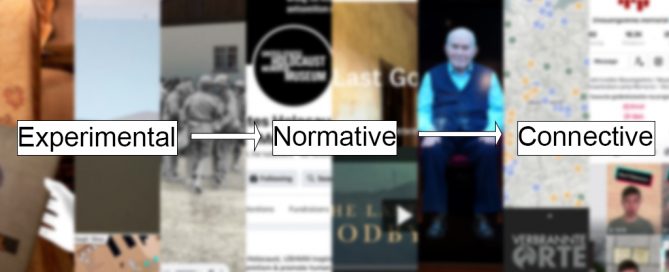Three Phases of Digital Holocaust Memory Development
By Professor Victoria Grace Richardson-Walden Through artificial intelligence, machine learning, crowdsourcing, digitisation, VR, AR and computer games, we take you on a tour of some of the world’s most prolific digital Holocaust memory initiatives by way of the theory of the ‘three stages’ of development. To argue that there are three phases of digital Holocaust memory development is not to suggest a clear and simple historical chronology from the 1990s – when digital technologies were first introduced into this arena – to now. Rather, this proposition offers a framework for mapping the different types of approaches organisations take when adopting digital media for the sake of Holocaust memory. These three phases are: the experimental, the normative, and the connective, and they define the different relationships organisations have with digital technology and cultures through their work. Let’s take a closer look at each of them. Experimental Phase This phase acknowledges periods of enthusiasm for a new medium, often led by a ‘what if?’ curiosity among a handful of digital advocates or a desire to shake up the status quo. During this phase, creators are explorative and playful with a medium’s possibilities, they’re not afraid to take risks and can be inquisitive [...]
